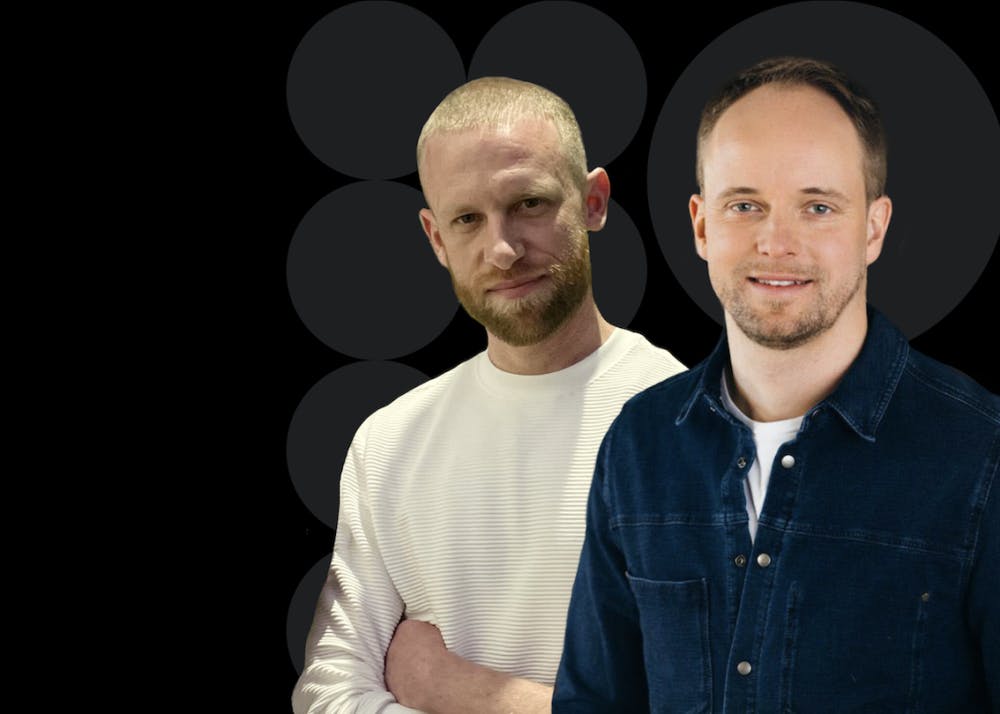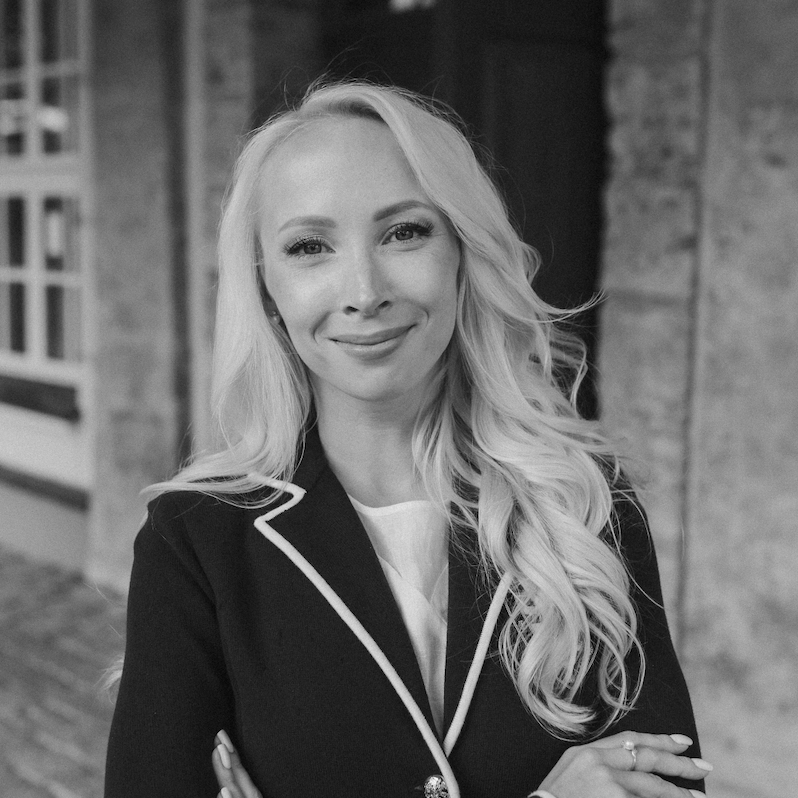We met up with Aaron Mattes, LA-based, Grammy Nominated, and RIAA Certified Platinum mix engineer working with artists like NLE Choppa, 50 Cent, Young Thug, Big Sean, Gucci Mane, Lil Baby, Polo G, and many more. Watch and read the full video interview with Aaron and Sonarworks co-founder Martins below.
Martins Popelis: Hi, everyone. I’m Martins, Co-Founder and CPO at Sonarworks, and we are here with Aaron Mattes at Six 1 Seven Studios. Awesome to be here and have a chat with you about music and technologies and sound.
Aaron Mattes: Hey, thanks for coming in.
Martins Popelis: Why don’t we start with you telling a little bit about yourself and how you got into the music and what brought you to the studio world?
Aaron Mattes: I’ve been playing music since I was a child. My father was an audio engineer, so I grew up around studios and just ended up falling in love with tweaking knobs and making music sound good.
Martins Popelis: How does it feel being a kid in the studio?
Aaron Mattes: I loved it. I was playing on SSLs like they were spaceships. It was a big toy for me. It was fun. I loved it.
Martins Popelis: Did you start right off as an engineer or did you also start playing something?
Aaron Mattes: I started as a musician. As I got older, I started deejaying and then started making beats, so I did some production and then eventually just ended up in the studio and enjoyed that more than everything. I worked my way into it.
Martins Popelis: Awesome. Can you tell a little more about – what stuff have you been working on? What are the highlights?
Aaron Mattes: Recently, I worked a lot with a rapper, NLE Choppa. I do all his recording, mixing, Atmos mixing. Then I work with a number of indie artists. I’ve done some K-pop stuff recently, some of their local indie artists and some other stuff for the labels.
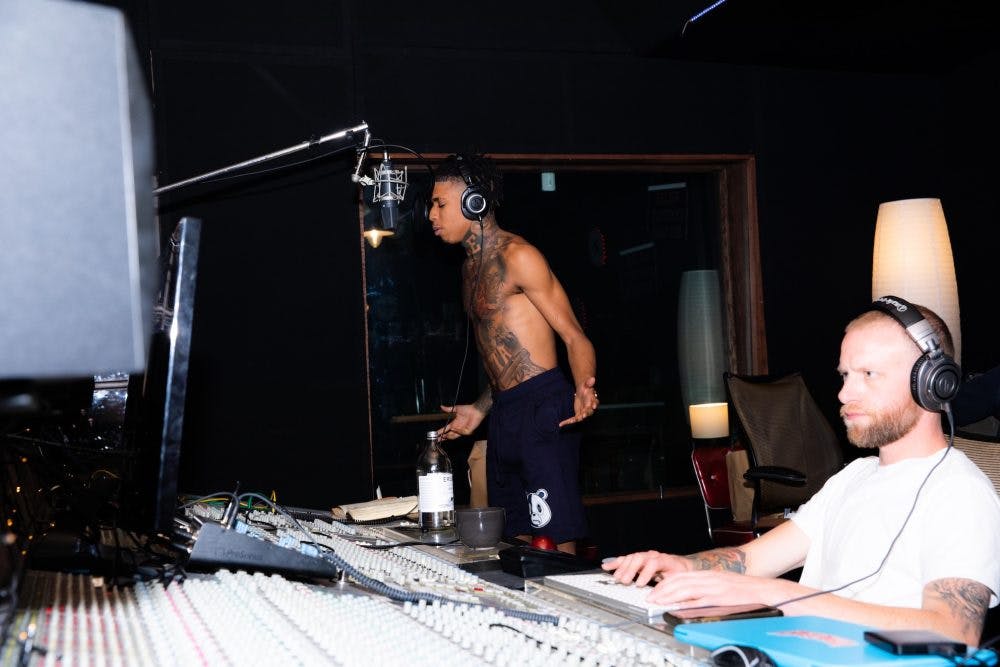
Martins Popelis: Do you focus primarily on the mixing or do you also do production?
Aaron Mattes: I do mostly mixing, but I also feel like as an engineer, whether I’m recording or mixing, I do production as well – so not as much making the beats. I do a lot of back-end production, vocal production with my artists. I feel like artists will write a song to a track, and then I mesh the two together, beyond just mixing it, but also do certain things to the beat or certain things to the vocals so they all fit together well and make it an actual record.
Martins Popelis: Cool. Do you remember your first studio?
Aaron Mattes: Originally, I had a bedroom studio at one point.
Martins Popelis: Everybody starts there.
Aaron Mattes: I had a few places. Obviously, I started there. Then as I got busier, I had a studio in Hollywood. I had a small studio and ended up over here at Fab Factory and got a beautiful-sounding room now.
Martins Popelis: Awesome. Can you tell a little about your gear, like the key things that you have in your studio?
Aaron Mattes: Obviously, I work in Pro Tools. I use Avid MTRX Studio for my interfaces. I mix on a hybrid system. In stereo I mix on a hybrid system. I go out that into my SSL Sigma summing app through a Dangerous interface and then back into Pro Tools – and just tons of plugins. You can see a whole array of different speakers. Got to check on everything.
Martins Popelis: Which ones are your main ones for the stereo mixers?
Aaron Mattes: The stereo, I like the ATCs. I jump around a lot with the NS10s, the Kalis, the Neumanns as well, just check everything in the car, of course. You got to check in the car and headphones. I just need to make sure it sounds right everywhere.
Martins Popelis: Can you tell more about how important or maybe not that important is the quality of the sound in the studio? You have worked in the bedroom studio and then worked yourself up to this super nice room here. What does it matter if the sound in the room is good or not good?
Aaron Mattes: It’s really about translation. If you get your mix sounding great in your room, but your room maybe has deficiencies in it, it may not sound the same in your room or in the car, in headphones, or in somebody else’s room. Just knowing your room really well and how it translates to other spaces, other systems, other headphones is really the most important. You need to be able to trust your speakers and know that the movements you’re making in the mix are going to translate well everywhere else, so that everybody’s hearing the same thing.
“You need to be able to trust your speakers and know that the movements you’re making in the mix are going to translate well everywhere”
Aaron Mattes
Martins Popelis: I’ve sometimes talked to people about this, and especially as you get more into the producer crowd, not the engineer crowd, then there is an opinion which has something to it, which basically says it’s more about the creativity. If the song is good, it’s good, and bad sound is not getting in its way. If it’s not good, then good sound is not going to save it. How do you feel about that kind of discussion?
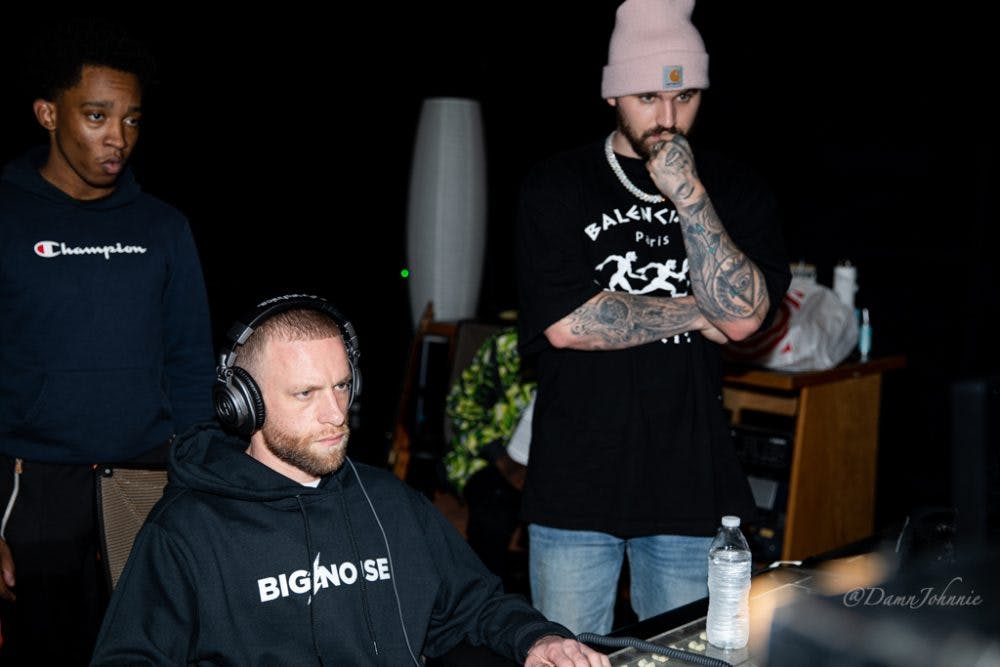
Aaron Mattes: I’ve definitely heard Grammy-winning stuff that maybe wasn’t my favorite mixes, but the vibe or the feel of the song was there. At the end of the day, that’s the most important thing. If the song makes you feel something, I think that’s the most important thing. As an audio engineer, I’m also very into making the sonics of the song pristine as much as possible.
Martins Popelis: Have you seen a great creativity somehow ruined by bad sound or something where it got stuck in being, I don’t know, presented or picked up because of not sounding that good? Have you had that?
Aaron Mattes: I think if you don’t hear what you’re working on properly, you can lose some of the energy of it, and you can lose some of the excitement of it, and not get excited about it as much yourself. It can flatten out the song, lose the emotion of it. Yeah, absolutely, the better sound quality is going to inspire you more, I think. You’re probably not going to make a hit record on a terrible pair of earbuds. Plus, music, you have to feel it too. If you have a good-sounding room, good speakers that sounds well, sounds tuned, you can feel it, you know that’s going to be important and help inspire you to make better music.
Martins Popelis: For some people who are just starting out in their careers and trying to be creative about making music, would you recommend them focus first on the creativity or also try to get their gear sounding good? At which stage does that become important in one’s career?
Aaron Mattes: I think it goes hand in hand. I think creativity is important to get out fast. Then when you get to a point where you’re letting other people hear it, it might not translate. It goes back to what we were talking about speakers in a good-sounding room – it might not translate well to other people. What you’re hearing in your head because you potentially – or you came up with that song. It might not translate to other people if they’re not hearing it the same way as you. Then you want better quality. You might want to hit a little harder.
Martins Popelis: How you got in touch with Sonarworks and SoundID Reference?
Aaron Mattes: I moved into my previous studio, bought a nice pair of monitors, and was working on some mixes. I kept getting them returned from the artist with more and more notes. These are really high-end speakers. It was a nice tuned room. It sounded great in my room. The mixes were perfect, what I heard. Then when I listened in other systems, and listened in the car, there were things that needed to be fixed. Obviously, the artist wasn’t happy with it.
Finally, I had heard about Sonarworks and demoed it. I could see the EQ curve of my room and immediately realized that I was compensating for the deficiencies in the room, which were making my mixes at that specific place a little too harsh, because the high end was being dropped out. I turned that on, and immediately my mixes were getting approved by the labels and artists a lot quicker. It blew my mind and just changed my whole world. I could really trust my ears and just be creative, not have to worry so much about the technical like, okay, oh, this room is lacking in the high end or lacking in the low end. I could just mix and just be creative and trust what I hear.
“I turned that on [SoundID Reference], and immediately my mixes were getting approved by the labels and artists a lot quicker. It blew my mind and just changed my whole world.”
Aaron Mattes
Martins Popelis: Then it opens up more creativity and enables you to focus on it, right?
Aaron Mattes: Yeah, because I don’t want to think about the technical stuff as much. I don’t want to think, oh, I need to turn up this frequency because of my room. I just want to, okay, it sounds good, I’m happy. I can do creative stuff. Absolutely, it made my workflow faster. It made me more confident as a mixer, made me get my mixes approved quicker. That all equals money. I was happy.
“It made me more confident as a mixer, made me get my mixes approved quicker. That all equals money.”
Aaron Mattes
Martins Popelis: Have you collaborated on some music over distance with somebody who’s also part of the production or the mix, and you have to talk about sound over distance?
Aaron Mattes: Yeah, a little bit. Luckily, a lot of the artists I do work with are local.
Martins Popelis: They come in?
Aaron Mattes: Sometimes they’re out of town when I’m working with them, or I’m working with the producer. That’s also I believe why it’s important for things to translate well everywhere else. I always do recommend listening to mixes in different environments, different speakers, cars, everything, because you might listen to one – or at least listening somewhere that you really know the system, in a properly tuned room.
Martins Popelis: Maybe you could share with us how did you get into Atmos, why did you get into it, and how do you feel about it.
Aaron Mattes: I love telling this story. The label had emailed me asking if I was set up to mix in Dolby Atmos. I immediately responded, “Yes, I am.” At the same time, I was also googling what is Atmos – no idea what it was. I saw this – I don’t want to call it a trend, because it’s definitely here to stay – just this new way of listening to music. It opened up endless possibilities to how you can listen to music – and knew I need to be a part of this. I figured out how to set up the rig. I bought all the speakers I needed. A few weeks later, I was basically set up, had the room tuned properly, and that was it.
“The label had emailed me asking if I was set up to mix in Dolby Atmos. I immediately responded, “Yes, I am.” At the same time, I was also googling what is Atmos – no idea what it was.”
Aaron Mattes
Martins Popelis: Room tuning with Atmos, is it important?
Aaron Mattes: Very important, yes. You don’t have just two speakers and a sub. I have a 7.1.4 system, so a lot of speakers with audio coming from all different places. You need it to all hit your ears at the same time. Everything needs to be delayed at the right time. It needs to be EQ’ed at the right time, with the right frequency response. Otherwise, as sound is moving around you, behind you, above you, it’s going to sound way different from speaker to speaker. You want it to sound – you want it to be a smooth transition between everything. Absolutely, it’s probably the most important thing for an Atmos rig.
Martins Popelis: Good we released a product for that.
Aaron Mattes: Yes, you did.
Martins Popelis: How do you feel – how do you feel about the SoundID Reference multichannel experience?
Aaron Mattes: It’s been great. It really just opened it up, made it really easy to make sure the room was tuned properly. Again, coming from using Sonarworks product in stereo, I just was able to trust what I’m hearing and just know it’s going to work properly and that it’s going to translate well. It was easy to set up. It just worked out great. With Sonarworks, I’m able to tune the room myself, with one of the measurement mics. The software makes it really easy too – it basically spells it out for you. It tells you exactly what you need to do, where you need to place the microphone to get the proper tuning for everything. It doesn’t take too long. It’s easy. The outcome is just as good as if you had somebody come into tune if you had to pay somebody to come in and tune the room. It really just made things easy, fast. Then if I ever decide to change the placement of the speakers, I don’t need to bring somebody else out again to tune the room. I can just run it again. It just made it a lot more simple.
“The outcome is just as good as if you had somebody come in to tune, if you had to pay somebody to come in and tune the room. It really just made things easy, fast. ”
Aaron Mattes
Martins Popelis: How do you feel about Atmos in general – about the creative alleys it’s opening up and where it could be going for music?
Aaron Mattes: It’s endless options now. Before, you were stuck with two speakers, and you have to – that’s literally what you were doing while you were mixing was trying to make sure everything’s heard and everything has its own space. Now you have all the space in the room to place things. It just allows endless possibilities really. I think it’s here to stay. It gives you just a better experience as a listener. You really do feel like you’re just immersed in the audio. It’s amazing.
“Atmos. It’s endless options now.”
Aaron Mattes
Martins Popelis: How different is it mixing for Atmos versus mixing for stereo? Does it take a lot more time and effort?
Aaron Mattes: I’ve mixed in stereo first and then mix it in Atmos. At that point, after I’d mixed in the stereo, I already – while I was doing the stereo mix, I was already thinking of where it was going to go in the Atmos mix. I had ideas of how things were going to move around.
Martins Popelis: Coming back to your gear, can you maybe share what is your single cheapest piece of gear that you love and use, and what is your most expensive piece of gear that you really like?
Aaron Mattes: The cheapest piece of gear, probably some of the software. I have some plugins that I use that aren’t crazy expensive, but I use them all the time.
Martins Popelis: Anything specific comes to mind?
Aaron Mattes: Valhalla is a great reverb. That was cheap. I’m trying to think. Sonarworks is fairly priced. It is very affordable. Some of the speakers I use aren’t crazy expensive, but they sound amazing. The Kali Audio stuff is great. Then for more expensive stuff, the monitors are, at the end of the day, your most important thing. I have my ATCs that I like to mix in stereo on. It’s all about what you’re hearing. You need to make sure you have – whether they’re expensive or not, you need to make sure you have proper monitors, which is also why it’s important to have properly tuned monitors for your room. Appreciate the Sonarworks stuff for that. I guess my interface is a little more expensive. That’s because I need a lot of speakers.
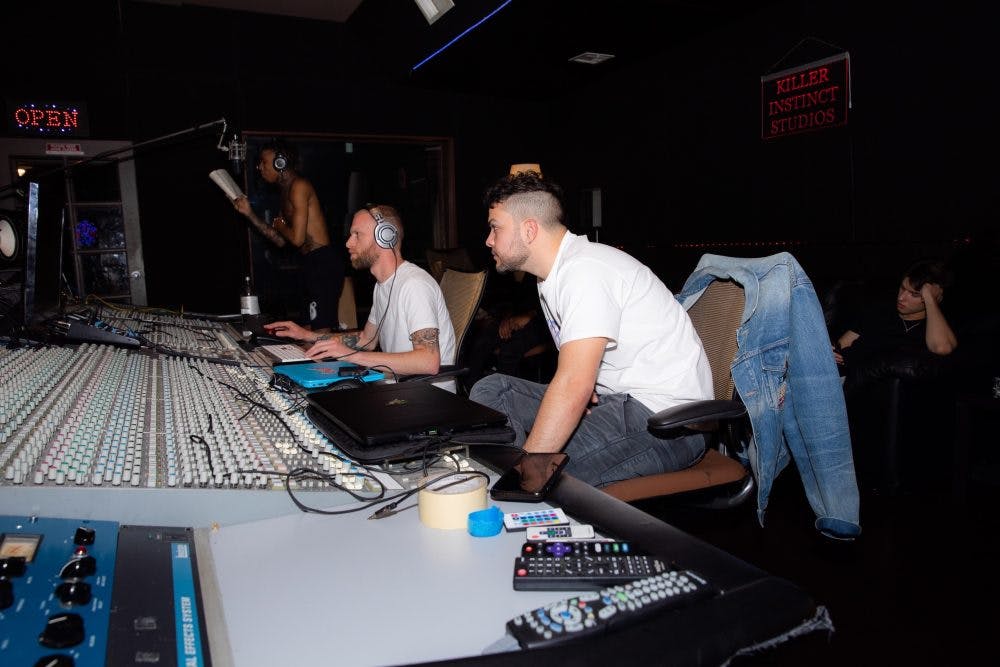
Martins Popelis: Do you have a favorite Atmos mix?
Aaron Mattes: There’s a lot of good stuff. Some of the Queen stuff is cool. I do like some of the Ariana Grande. I like different songs for different reasons. There are some that just are really interesting that are crazy mixes that have things going on all over the place. Then there are some that just feel very just immersed. Maybe there’s an older song that got remixed in Atmos. You just feel it surrounding yourself more. It’s still kind of the Wild West with Atmos. There are no rules yet. It’s interesting seeing what other people are doing with Atmos and where they take songs. No rules, so it’s been a fun experiment.
“It’s still kind of the Wild West with Atmos. There are no rules yet. ”
Aaron Mattes
Martins Popelis: How do you feel about the NFTs seemingly coming into the music space?
Aaron Mattes: I think it can really help artists, especially independent artists. It really just opens up all kinds of doors to artists to make more money, get more exposure. I think it’s very important. I don’t know as much as I probably should know about them yet. I’m trying to learn more. I can see the importance of it. I’m trying to get involved with that as much as possible, learn more about it.
Martins Popelis: How do you feel now about Atmos – obviously, now it’s picking up as a trend. You can not see it among the creators. Is it ready to take off? Is there anything missing? How do you feel about the future of it?
Aaron Mattes: I think it’s so new that there’s going to be new advancements towards Atmos, I think. Obviously, the consumer isn’t going to be able to afford a huge array of speakers. The headphones I think will need to advance a bit so that you can hear the same movements in the audio and feel the same immersiveness in the audio. I think headphones will be important. I think music might not even be the thing that’s going to push the Atmos to the next level, because there’s also the video games and the whole Metaverse and everything. That could also be an important thing. Having virtual reality and everything, having good headphones for that I think would be very helpful.
“I think music might not even be the thing that’s going to push the Atmos to the next level, because there’s also the video games and the whole Metaverse”
Aaron Mattes
Martins Popelis: Apple, by the way, just announced this thing for headphone spatial personalization. We’ll see how that develops.
Aaron Mattes: For your ears? I heard something about that. Actually, that would be very important, because what I hear might sound different from what you hear. Beyond having the room tuned, you might want your ears tuned or your – I don’t even know how that’s going to work, but I think that would be important.
Martins Popelis: We’ll see soon, I guess. Would you recommend people who are working in stereo to go and upgrade to Atmos? Do you see it’s the time is right?
Aaron Mattes: Absolutely, yeah. I think as I said before, the possibilities are endless. Music’s meant to be experienced. When you can be in the middle of it, it gives you a whole other feeling. I feel like that’s very important.
“Music’s meant to be experienced. When you can be in the middle of it, it gives you a whole other feeling.”
Aaron Mattes
Martins Popelis: Any particular place or angle – or how would you recommend people thinking about upgrading to Atmos?
Aaron Mattes: As an engineer?
Martins Popelis: Yeah. Just do it?
Aaron Mattes: Just do it, yeah. That’s what I did. I took the plunge. I didn’t know at first if it was going to be – if it was going to stick around or not. I felt like it could be the future. I just did it and made it work.
Martins Popelis: You certainly seem satisfied with it.
Aaron Mattes: Yeah, I am. I’m enjoying it. I definitely recommend it to whoever is interested, any mixer, any artist, any producer that’s trying to get into it. I think as time goes by, the more technology of it coming out, and it’ll make it easier, as what you guys are doing with Sonarworks makes it a lot easier for people to get more involved with it. I think the time’s now to get on to it.
Martins Popelis: By the way, do you have any advice for people who are just starting out in their producer or engineer career? What would be your top two, top three things you would generally recommend from your experience? What does it take to be successful in this?
Aaron Mattes: I think it’s important to just be creative. Music is all about what you’re feeling. If you feel something, just put it out. Then in terms of getting out more into the world is – I’d say relationship building is very important. The more people you know, the better. You can get your music heard. Just have fun with it. Enjoy it. Be creative. Push the boundaries. Try new things. You never know what the next trend is going to be. If you just stick with whatever’s already happening, nothing’s going to evolve. As things evolve, like with Atmos, with everything, it just gets better and better, and then you can build off of that. Enjoy what you do. Have fun with it.
Be creative. Push the boundaries. Try new things. You never know what the next trend is going to be.
Aaron Mattes
Martins Popelis: Is there any particular project that comes to your mind that changed your career or which was particularly highlighted?
Aaron Mattes: I don’t know, it’s always – different stages of my life have pushed me to the next level. NLE Choppa, who I work with a lot now, has brought me into this world and allowed me to get into the Atmos stuff. That was very helpful. That was the type of situation that was luck, being in the right place at the right time, being prepared for it as well. I was covering for another engineer. The one song I did with him was the only song that got released that whole week. It ended up going platinum.
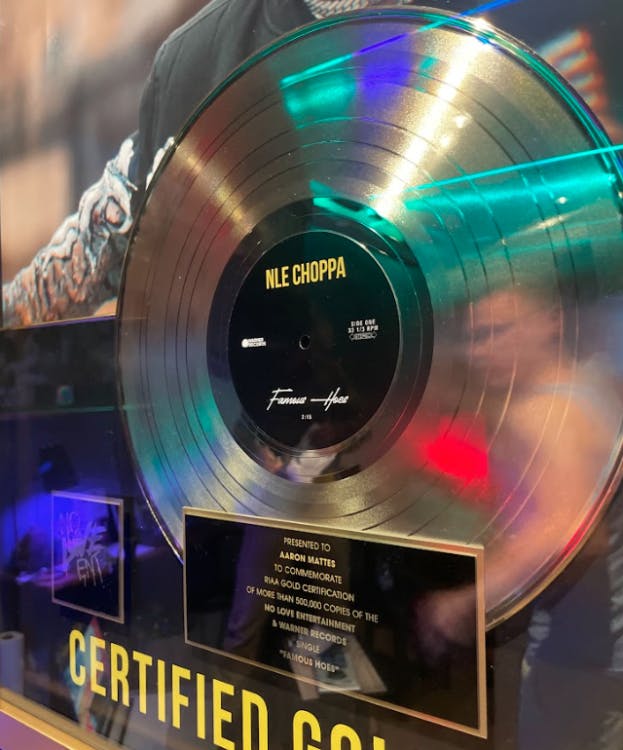
The next thing I knew, he was back in town and wanted to work with me. He didn’t even know my name. I was able to become his main engineer and started doing the mixing for him and started doing Atmos mixes for him. It just built up off of that. At lower levels or other levels earlier in my career, similar things like that had happened. Be in the right place, right time. I did get to work on a Christmas album about 10 years ago. We ended up doing it in the middle of the summer. To get into the vibe of Christmas, I think we rented about $2,000 work of Christmas decorations to cover the studio. We had a life-size nutcracker and Christmas trees and presents everywhere and fake snow in the studio. It was a mess, but we had to get in the zone for Christmas in August. Almost the Christmas season in August. Besides Choppa not knowing my name when he first started working with me or when we started working more frequently together, he – after we got working together more frequently, we had another artist in the studio. The three of us were just talking. He looks at me. He’s like:
“I remember the first time you came in to do that song,” the song that ended up going platinum. He’s like, “I thought you were going to fuck up my whole song.”
NLE Choppa
I thought he was another one-hit wonder-type person. Maybe I shouldn’t be saying that. Now he’s multi-platinum and doing really well. Neither one of us knew what the future was to hold for us. That was years ago. We’ve been doing our thing since then.
To learn more about Aaron, visit https://www.atmosmixing.com/ and follow him on Instagram.
